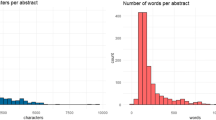Abstract
Historically, the changing roles of academics have often been associated with changing relations between scholarship and the state. What functions did the state expect scholars to fulfill? Using a historical–biographical approach, this essay considers the example of early nineteenth-century astronomer Ferdinand Rudolf Hassler, who immigrated to the United States from Switzerland in 1805 and whose contributions to various scientific projects during the next decade (i.e., the final decade of the Napoleonic Wars) revealed a key shift in modern academic identity—a shift from cosmopolitanism to nationalism shaped by the political anxieties and geopolitical uncertainties of his time. Hassler’s involvement with a US coastal survey and the construction of a US national observatory raised doubts about the extent to which a scholar (particularly an immigrant scholar) could be a “cosmopolitan” and a “servant of the state” simultaneously. Hassler, like others of his generation, failed to balance these competing and perhaps fundamentally incompatible roles. His case, together with his own commentary on his experiences, sheds light on similar dilemmas facing so-called global scholars today.
Similar content being viewed by others
Notes
See, for example, Kant (1783).
Emerson (1837).
Cajori (1980).
Zschokke (1882).
Zschokke (1882), pp. 18–19.
Cajori (1980), p. 38.
Zschokke (1882), p. 122.
Cajori (1980), p. 43.
Cajori (1980). p. 55.
Cajori (1980), p. 55.
Van Santvoord (1876).
Cullum (1891).
Quoted in Nourse (1980).
Monroe (1901).
Ibid.
Benton (1857).
Zschokke (1882). p. 92.
Cajori (1980). p. 60.
Cajori (1980), p. 62.
Cajori (1980), p. 75.
Cajori (1980), p. 88.
For more on the controversy surrounding the US–Canadian boundary survey, see Carroll (2001).
Zschokke (1882), P. 104.
Cajori (1980), pp. 85–86.
Cajori (1980), p. 83.
Cajori (1980), p. 86.
Cajori (1980), p. 92.
Zschokke (1882), p. 81.
Hassler (1834).
References
Benton, T. H. (Ed.). (1857). Abridgment of the debates of congress, from 1789 to 1856 (p. 705). New York: D. Appleton and Company.
Cajori, F. (1980). The chequered career of Ferdinand Rudolf Hassler. New York: Arno Press.
Carroll, F. M. (2001). A good and wise measure: The search for the Canadian-American boundary, 1783–1842. Toronto: University of Toronto Press.
Cullum, G. W. (1891). Biographical register of the officers and graduates of the U.S. military academy at West Point, N.Y., from its establishment in 1802 to 1890, with the early history of the United States military academy (Vol. 3) (3rd ed., p. 548). Boston: Houghton, Mifflin, and Co.
Emerson, R. W. (1837, August 31) The American scholar. Speech at Phi Beta Kappa Society at Cambridge.
Hassler, F. (1834). Principal documents relating to the survey of the coast of the United States since 1816. New York: William Van Norden.
Kant, I. (1783). Beantwort der Frage: Was ist Aufklärung, answer to the question: What is enlightenment? Available on: http://www.europeanjournal.it/ferguson_liberalism_republicanism_marxism.pdf.
Monroe, J. (1901). In S. M. Hamilton (Ed.), The writings of James Monroe: including a collection of his public and private papers and correspondence (Vol. 5, pp. 1807–1816). New York: G.P. Putnam’s Sons.
Nourse, J. E. (1980). Memoir of the founding and progress of the United States Naval Observatory. In I. B. Cohen (Ed.), Aspects of astronomy in America in the nineteenth century (p. 5). New York: Arno Press.
Van Santvoord, C. (1876). Memoirs of Eliphalet Nott (p. 123). New York: Sheldon and Company.
Zschokke, E. (1882). Translations from the German of the Memoirs of Ferdinand Rudolf Hassler. Nice: V.-Eug., Gauthier, and Co.
Author information
Authors and Affiliations
Corresponding author
Rights and permissions
About this article
Cite this article
Nelson, A.R. Citizens or cosmopolitans? Nationalism, internationalism, and academic identity in the early American republic. Asia Pacific Educ. Rev. 14, 93–101 (2013). https://doi.org/10.1007/s12564-013-9247-z
Published:
Issue Date:
DOI: https://doi.org/10.1007/s12564-013-9247-z




